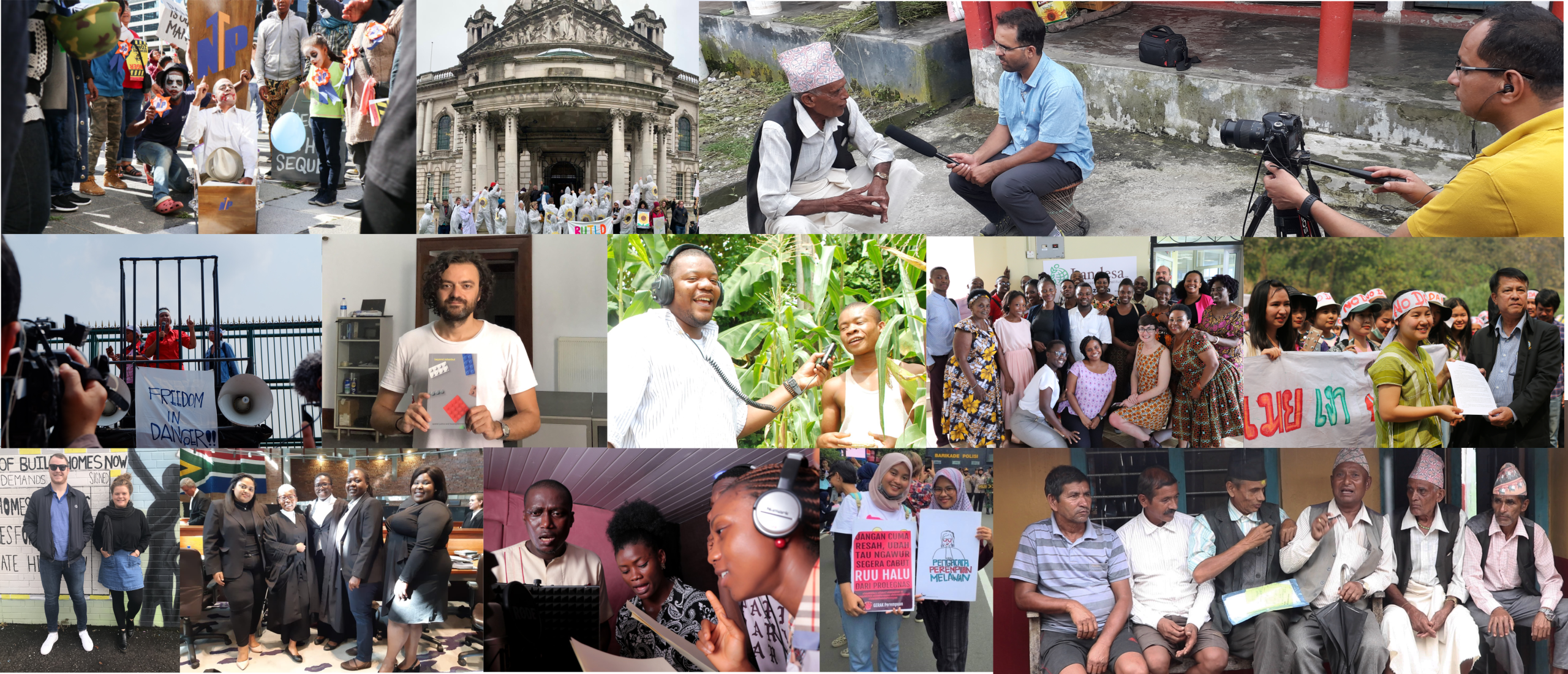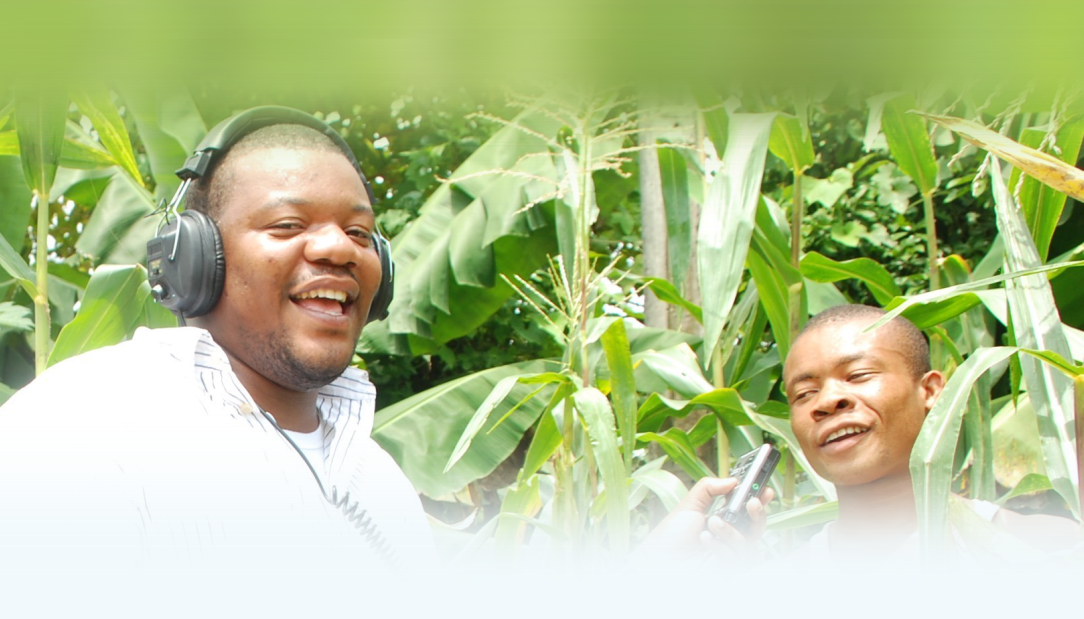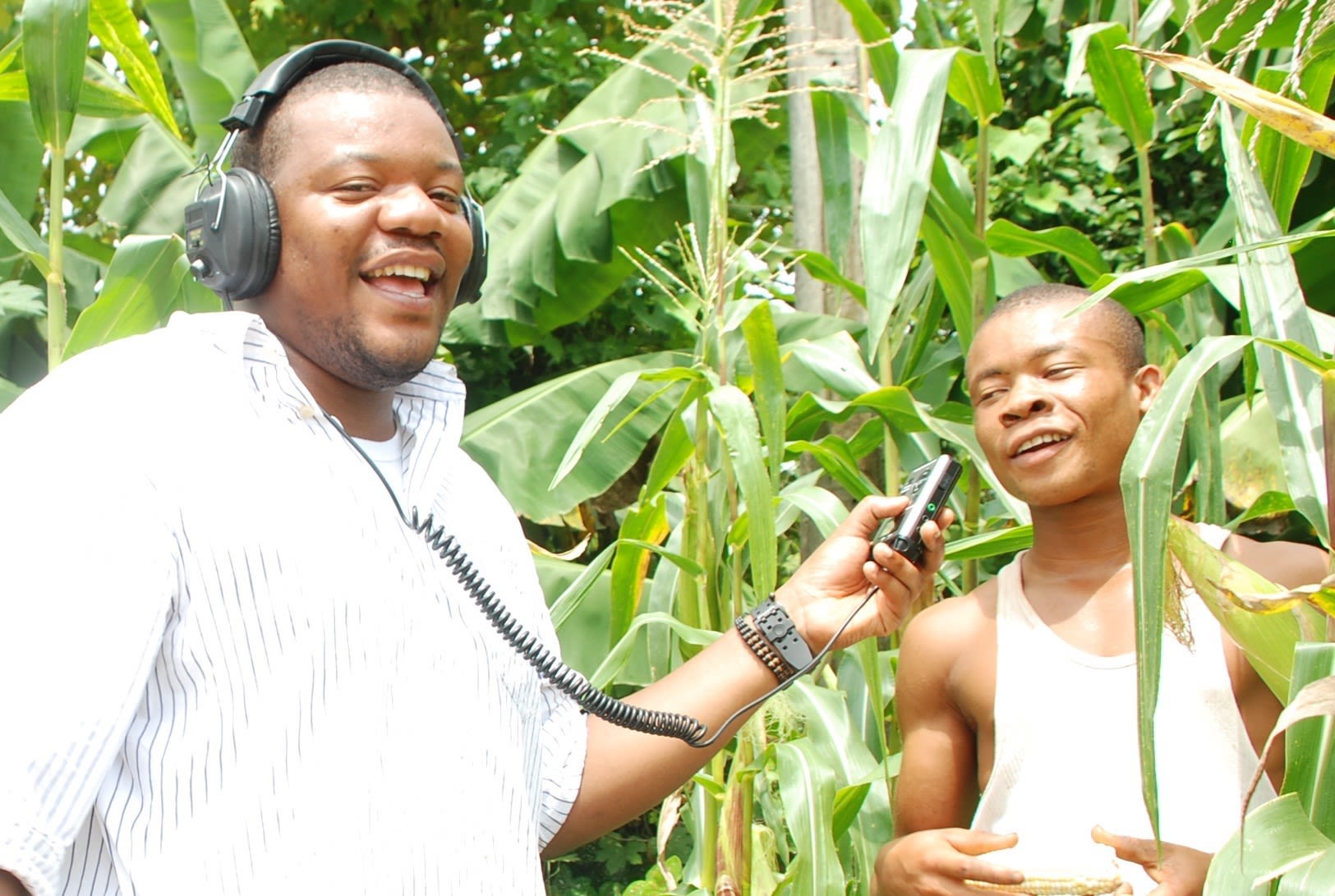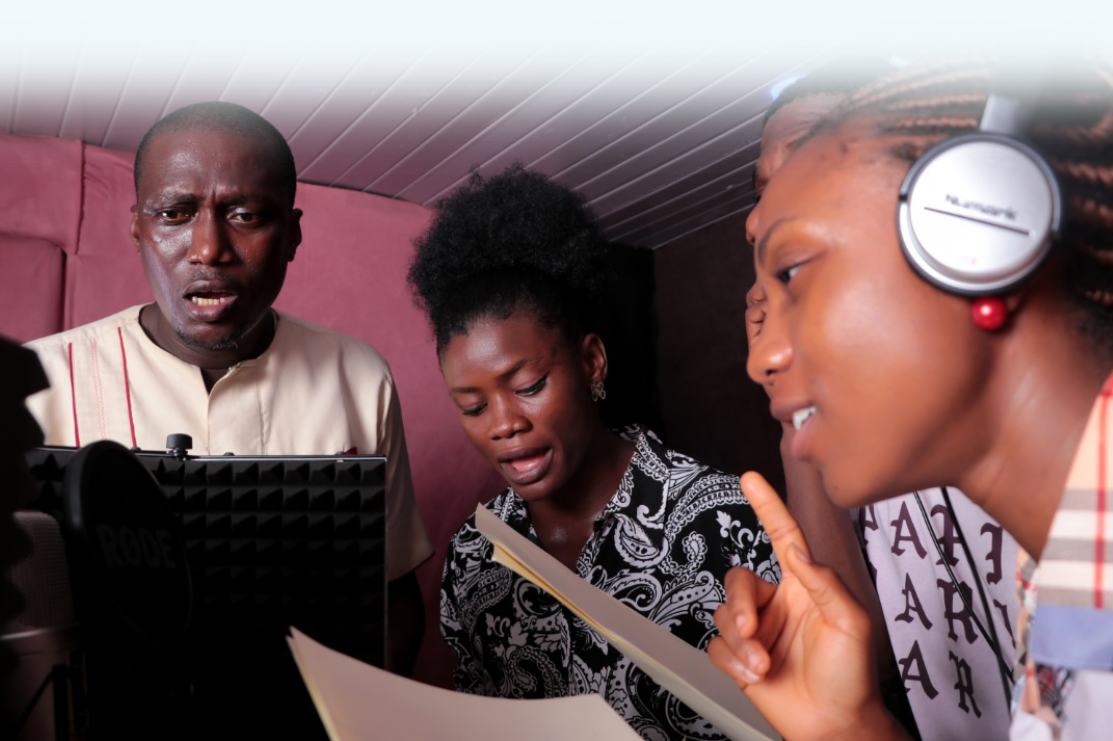Nnaemeka Ikegwuonu
Nigeria

Bertha Challenge Fellow Nnaemeka Ikegwuonu’s work aims to educate and equip local farming communities with agricultural, business and environmental information. During his Fellowship year, Nnaemeka told the stories of those forcefully displaced by gas exploration in Imo State, Nigeria.
Nnaemeka Ikegwuonu is an investigative journalist from Imo State, Nigeria, who has a unique way of presenting his work. Founder of the first farmer radio station in Nigeria, he describes himself as a community radio agricultural journalist focused on education and empowering his local farming communities with information on agriculture, business and environment.
Imo State contains the largest gas deposits identified to date in Africa, and gas exploration in the area has led to the forceful displacement of an estimated 25,000 smallholder farmers and their families across four communities. When Nnaemeka first investigated the displacements, he found that many farmers had woken to barbed wire and armed soldiers separating them from their farmland as gas companies moved in, supported by the military. He says, “It really upset me. Old people – men and women – woke up and they were landless.”
Nnaemeka used his Bertha Challenge Project Fund to create a ten-part radio series about the forced displacements, titled When There Was No Land to Farm. For the series, Nnaemeka interviewed many of the affected farmers in Imo State who have passed their land through families for generations and do not hold titles affirming their ownership.
Nnaemeka Ikegwuonu is an investigative journalist from Imo State, Nigeria, who has a unique way of presenting his work. Founder of the first farmer radio station in Nigeria, he describes himself as a community radio agricultural journalist focused on education and empowering his local farming communities with information on agriculture, business and environment.
Imo State contains the largest gas deposits identified to date in Africa, and gas exploration in the area has led to the forceful displacement of an estimated 25,000 smallholder farmers and their families across four communities. When Nnaemeka first investigated the displacements, he found that many farmers had woken to barbed wire and armed soldiers separating them from their farmland as gas companies moved in, supported by the military. He says, “It really upset me. Old people – men and women – woke up and they were landless.”
Nnaemeka used his Bertha Challenge Project Fund to create a ten-part radio series about the forced displacements, titled When There Was No Land to Farm. For the series, Nnaemeka interviewed many of the affected farmers in Imo State who have passed their land through families for generations and do not hold titles affirming their ownership.



In 2016, four community leaders were persuaded to sell approximately 300 hectares of their land at a hugely undervalued price, to Shell and Shell-owned Nigerian subsidiary companies. The farmers and families that relied and lived on this land found themselves without access either to their land or to compensation.
Each episode was followed by a listener phone-in with legal experts. The series was broadcast to 2 million listeners in Nigeria and also made available to international audiences through a dedicated website that contains the scripts and photos documenting the recording process. Nnaemeka says, “The great thing about the Fellowship has been the connection with international activists and journalists... For a long time we’ve been thinking that our work has been local, but recently we’ve recognized the fact that we need to start thinking about a global audience.”
The Bertha Challenge Fellowship also provided Nnaemeka the opportunity to connect his local work with other Fellows based on the African continent. As part of his Fellowship, he took part in a regional Bertha Challenge Connect Fund project in Nairobi with Protus Onyango (journalist Fellow) and Dr. Monica Magoke-Mhoja (activist Fellow). As well as providing training to local journalists in Kenya on using radio to engage farmers in land rights, Nnaemeka attended an open forum where families who had lost land met with public officers. Nnaemeka used this experience with Kenyan land activists and journalists in an episode of his radio serial drama Think Twice When It Sounds Too Good to Be True, sharing with Nigerian smallholders the need to engage, interact with and confront public officials on securing access to land, and to demonstrate a tactical approach to doing this.
"People don’t understand the law, and we think that mediums like radio can be used to actually put the law into language that people understand... With a little bit of entertainment – that is basically what we are doing."
Nnaemeka Ikegwuonu, The Smallholders Foundation

CREDITS
Photo 1: Nnaemeka Ikegwuonu interviewing a farmer in Imo State, Nigeria. Image: The Smallholders Foundation
Photo 2: Aerial view of the Waltersmith Petroman modular refinery in Imo State, Nigeria. Image: The Smallholders Foundation
Authors: The Bertha Challenge Team
Editorial Consultant: Karen Frances Eng
This story was originally published in the Bertha Fellows book and some of the information in this story may have changed since it was first published.


 Built with Shorthand
Built with Shorthand